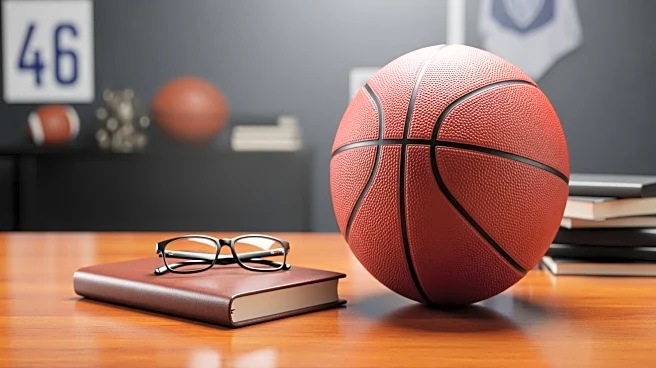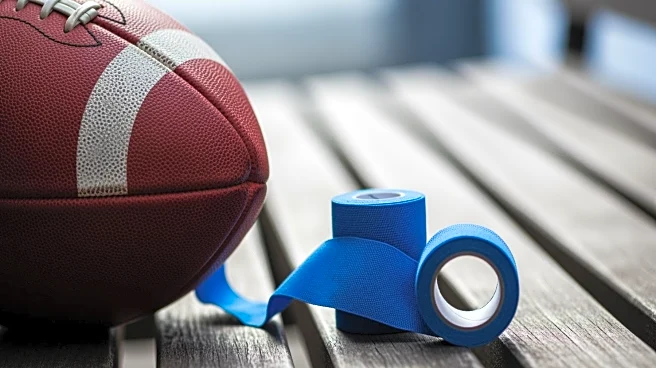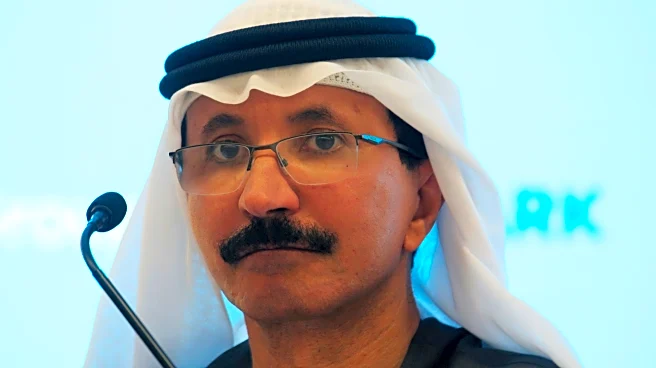What's Happening?
Golden State Warriors guard Stephen Curry has accepted a position as assistant general manager at his alma mater, Davidson College. This move marks the first time an active professional player has taken
on an administrative role within an NCAA team. Curry, a four-time NBA champion, will work alongside Davidson's GM Austin Buntz to support both the men's and women's basketball programs. The Wildcats have faced challenges in recent years, struggling in the Atlantic 10 conference under the leadership of Matt McKillop, son of former coach Bob McKillop. Curry's involvement is part of a broader effort to revitalize the program, which includes the establishment of an eight-figure fund for the basketball teams, supported by Curry, his wife, and other Davidson boosters.
Why It's Important?
Curry's new role at Davidson College is significant as it highlights the increasing trend of professional athletes taking on dual roles in sports management and administration. This move could set a precedent for other athletes considering similar paths, potentially influencing the dynamics of college sports management. For Davidson, Curry's involvement brings renewed attention and resources to a program that has struggled in recent years. The financial backing and Curry's influence could enhance recruitment efforts and improve team performance, potentially leading to a resurgence in the program's competitiveness within the NCAA.
What's Next?
As Curry balances his NBA career with his new administrative duties, it remains to be seen how he will manage these responsibilities. His involvement is expected to focus on recruitment and team-building activities, particularly during the NBA offseason. The success of this initiative could encourage other colleges to explore similar partnerships with professional athletes, potentially reshaping the landscape of college sports administration.
Beyond the Headlines
Curry's return to Davidson also underscores the strong ties between athletes and their alma maters, highlighting the potential for alumni to play pivotal roles in the development of college sports programs. This move may inspire other former college athletes to engage more deeply with their former schools, leveraging their professional success to benefit collegiate sports.










